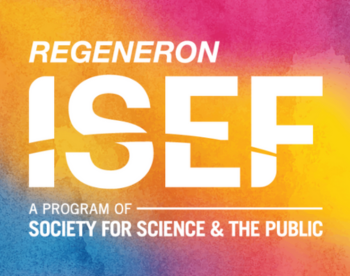ISEF 2025 Final Schedule & Preparation Guide: Everything Students Need to Know
[elementor-template id="1682"]
As the world’s largest and most prestigious science competition for young students, the Regeneron International Science and Engineering Fair (ISEF) has long been a dream stage for science enthusiasts worldwide. With the 2025 ISEF Grand Finals just around the corner, aspiring participants are fully prepared to showcase their talents. To help students understand the event schedule and make the most of their preparation time, we present the complete 7-day itinerary for the 2025 ISEF Grand Finals.
I. Background and Significance of the Competition
Since its inception, ISEF has been committed to inspiring young people’s interest in science and innovation, offering a global platform to nurture future scientists with international vision and creative potential. Covering 22 disciplines including physics, chemistry, computer science, and engineering, the competition challenges participants with three core tasks: writing a research paper in English, creating a scientific poster, and participating in an on-site defense.
At ISEF, students not only get to showcase their research but also interact with outstanding peers from over 70 countries, broadening their global perspectives. Winning an ISEF award also significantly enhances a student’s chances of being accepted into top universities, including Ivy League schools.
II. 2025 ISEF Grand Finals Schedule
Day 1: May 10 – Registration and Check-In
Participants must arrive in Columbus, Ohio, USA, and complete registration at the designated location. Students need to bring all necessary identification and documents to verify their identity, collect competition materials, and receive an event guide. This marks the official start of their ISEF journey and is crucial to ensuring smooth participation in the following days.
Day 2: May 11 – Project Setup and Safety Inspection
Students will set up their research display booths. The setup should clearly highlight the project’s innovation, research process, and results, while also being aesthetically pleasing and logically organized. After setup, event staff will conduct safety checks to ensure that no potential hazards exist in the displays, thus guaranteeing a secure and smooth event.
Day 3: May 12 – Opening Ceremony and Public Display
The opening ceremony gathers all participants, judges, and guests from around the globe. Organizers will introduce the event, welcome participants, and invite keynote speakers to deliver inspiring speeches. After the ceremony, students begin presenting their projects at their booths to peers, judges, and general visitors, showcasing their scientific achievements and innovative thinking.
Day 4: May 13 – Judging Day
This is one of the most critical parts of the competition. Students will be interviewed by judges at their booths. The judges will assess the project’s topic selection, research methodology, experimental design, data analysis, and innovation. Participants must clearly demonstrate their understanding of the project and answer questions with clarity and confidence to showcase their scientific knowledge and problem-solving skills. The evaluation on this day directly impacts award results.
Day 5: May 14 – Public Outreach Day
On Public Outreach Day, participants present their projects to the general public. This day is a valuable opportunity for students to communicate science, raise public awareness, and engage with people from various walks of life. By interacting with the public, students gain a better understanding of society’s concerns and needs in scientific research, enhancing their sense of responsibility and communication skills.
Day 6: May 15 – Special Awards Judging and Student Networking
Special Awards Judging is a unique feature of ISEF. Besides the regular category awards, many enterprises and research institutions offer special awards to recognize exceptional work in specific areas. Judges will evaluate these projects separately. Meanwhile, students will also participate in various networking activities, where they can share research experiences, learn from each other, and build international friendships.
Day 7: May 16 – Grand Awards Ceremony and Project Teardown
After intense competition, the Grand Awards Ceremony marks the culmination of the ISEF journey. The winners of each award category will be announced and honored with certificates, trophies, and monetary prizes. This ceremony not only acknowledges the students’ hard work but also encourages them to continue their scientific journey. After the ceremony, participants will dismantle their booths and wrap up their ISEF experience.
III. Preparation Tips for ISEF Participants
To achieve excellent results in the ISEF Grand Finals, students must prepare thoroughly in the following areas:
1.Project Preparation
The project is the core of the competition. Students should ensure that their research is innovative, scientifically sound, and feasible. When choosing a topic, focus on current societal issues or cutting-edge technologies that align with personal interests and strengths. During research, follow strict scientific methods to ensure the authenticity and reliability of data. Also, consider the practical application of the project—how can the results make a positive impact on society?
2.Presentation Preparation
Research reports should be well-organized and logically sound, clearly explaining the research background, objectives, methods, process, and conclusions. Students must practice effective presentation skills to communicate their ideas clearly and respond confidently to questions. Props such as experimental models or visual aids can enhance the clarity and persuasiveness of the presentation.
3.Language Preparation
ISEF is an international competition conducted primarily in English. Students need strong English listening, speaking, reading, and writing skills. Before the event, students should intensively train in English expression through reading scientific papers, attending speaking workshops, or interacting with native speakers. Familiarity with scientific vocabulary and terminology is essential for effective communication during the competition.
4.Mental Preparation
ISEF can be a high-pressure experience. Students should maintain a positive attitude and be mentally prepared for various challenges. Build confidence before the event, stay calm under pressure, and learn stress-relief techniques such as exercising, listening to music, or talking with friends to stay mentally sharp throughout the competition.
[elementor-template id="1674"]
IV. ISEF Judging Criteria
Understanding the ISEF judging criteria helps students prepare effectively and highlight the most important aspects of their work:
1.Innovation
Innovation is a key criterion. Judges look for projects that pose new scientific questions, employ novel methodologies, or produce unique findings. A truly innovative project reflects the student’s originality and offers new directions for scientific exploration.
2.Scientific Thought
Scientific rigor is equally important. Projects must follow standard scientific procedures with careful experimental design, accurate data analysis, and logical conclusions. Judges will examine whether the work aligns with scientific principles and methodologies.
3.Practical Application
Judges will also consider the real-world applicability of the project. Can it solve an actual problem or benefit society in a tangible way? A project with practical value demonstrates the student's social awareness and ability to apply science in meaningful contexts.
4.Teamwork (for team projects)
For team entries, collaboration is crucial. Judges assess how well the team cooperated, divided responsibilities, and communicated. A strong team showcases effective teamwork and balanced contribution from all members.
V. Experience Sharing from Past Participants
To better prepare for ISEF, here are some valuable tips based on previous participants’ experiences:
1.Plan Ahead
Students should plan their projects early and manage their time wisely to meet all deadlines. Create a detailed research timeline, track progress regularly, and adjust the plan as needed. It’s also important to become familiar with ISEF rules and judging criteria well in advance.
2.Focus on Details
Every detail matters—from how the booth looks to how you speak with judges. Ensure your poster is well-designed, clearly written, and visually appealing. During interviews, pay attention to your tone, facial expressions, and professional demeanor to leave a strong impression.
3.Stay Positive and Engaged
Maintaining a positive attitude throughout the competition can make a big difference. Be open to feedback, eager to learn from others, and ready to adapt. Whether you win or not, the experience and growth you gain from ISEF are invaluable.



